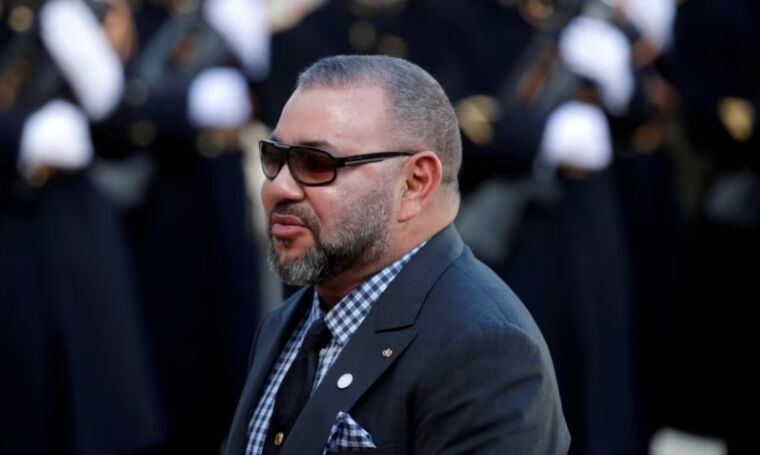Israel Breaks Ranks: Recognizes Moroccan Sovereignty Over Western Sahara
Israel's recognition of Moroccan sovereignty over Western Sahara marks a significant shift in the long-standing conflict, potentially impacting diplomatic relations and regional stability.
Israel recognized Moroccan sovereignty over Western Sahara on Monday, becoming the second country to do so after the United States. This move comes after Moroccan King Mohammed VI received a letter from Israeli Prime Minister Benjamin Netanyahu acknowledging Morocco's claim over the disputed territory.
The recognition of Western Sahara as Moroccan territory is expected to strengthen relations between Israel and Morocco, as well as advance regional stability, according to Israeli Foreign Minister Eli Cohen. This development comes as part of the "Abraham Accords" that were brokered by former US President Donald Trump, which aimed to normalize relations between Israel and Arab states.
The decision to recognize Morocco's sovereignty over Western Sahara has overturned decades of US policy and international consensus. The international community has long maintained that the status of Western Sahara should be settled through a United Nations referendum.
However, the Trump administration promised in December 2020 to recognize Moroccan sovereignty in exchange for Morocco normalizing relations with Israel. The annexation of Western Sahara by Morocco took place in 1975, resulting in a conflict with the pro-independence Polisario Front.
A 1991 cease-fire agreement brokered by the UN established a peacekeeping mission to monitor the truce and prepare for a referendum on the territory's future. However, disagreements over voter eligibility have prevented the vote from taking place.
Tensions over Western Sahara have escalated in recent years, with the Polisario Front renewing armed conflict in 2020 after a 29-year truce. The conflict has also affected Algeria, which has broken diplomatic ties with Morocco in response.
The enmity between the two nations, which have shared allies in the West, the Middle East, and elsewhere, has further complicated the situation.
With Israel now recognizing Moroccan sovereignty, the balance of power in the Western Sahara conflict appears to be shifting.
This decision has significant implications for the region and could impact diplomatic relations between countries involved in the dispute. It remains to be seen how this development will influence the long-standing quest for a resolution in Western Sahara.




